

THE WONDER OF ROTARY ACTION GROUPS
Story By Crez Dickens and Sharmila Nagarajan, FOUNDER of rotary action group for menstrual health and hygiene
When someone first joins Rotary to discovers all the amazing things which can be done, it can seem a daunting job to decide what to do first. That’s where Rotary Action Groups can help you and your club.
Maybe you want to plan a project around dementia or diabetes but don’t know where to start. You might even have specialist knowledge that could be shared with others.
Action groups support clubs and districts who want to do a large-scale community development and humanitarian service project. They have members with expertise and a passion for a particular subject.
They are run independently of Rotary International but are RI-recognised bodies. These groups advise on community assessment, help clubs prepare a project, plan and budget for it, as well as helping with monitoring and evaluation, while suggesting potential funders.
Membership is open to Rotarians, Rotaractors and Peace Fellows. There is plenty of scope for choice with subjects as wide-ranging as addiction prevention, blindness prevention, hepatitis, malaria, mental health initiatives, multiple sclerosis, peace, refugees, water, sanitation and hygiene. Rotary Action Groups cover all seven areas of focus.
For a current list of groups and websites, is available on the Rotary International website.
Recognised by RI in 2005, the action groups have grown dramatically globally. By 2022, there was a combined membership of 36,030 in more than 150 countries. Each group boasts an average of more than 900 members representing 43 countries, which had supported 670 projects in the year 2013 to 2022, and raised nearly $426,000s.
If a group of Rotarians want to apply to become an action group they must have at least 50 members representing five countries and three zones, who share a common interest in a specific worthwhile service activity which advances the Object of Rotary.
ACTION GROUP FOCUS:
Menstrual Health & Hygiene
One of those Action Groups is the Rotary Action Group for Menstrual Health & Hygiene (RAGMHH) which focuses on specific global issues.
Its primary purpose is to address challenges related to menstrual health and hygiene, especially in underserved communities. Period poverty is a global issue that needs to be addressed. Their tagline is ‘Break The Silence’.
Rotary Action Groups typically consist of Rotarians and professionals who collaborate on specific projects, share knowledge, and work towards sustainable solutions in their respective areas of focus. RAGMHH engages in activities like:
- Advocacy and awareness: Raise awareness about menstrual health and hygiene issues, break taboos, and advocate for policies that promote better menstrual health.
- Education: Provide educational programmes to schools, communities, and healthcare facilities to enhance understanding of menstrual health, hygiene practices, and dispel myths and stigma.
- Infrastructure development: Support the development of proper sanitation facilities, especially in schools, to ensure a hygienic and dignified environment for menstruating individuals.
- Distribution of menstrual products: Facilitate the distribution of affordable and sustainable menstrual hygiene products to those in need, particularly in underserved communities.
- Collaboration and networking: Foster collaboration among Rotarians, NGOs, governmental agencies, and other stakeholders to maximize the impact of initiatives related to menstrual health and hygiene.
- Research and innovation: Promote research and innovation in the field to develop new, cost-effective, and sustainable solutions for menstrual health and hygiene.
- Capacity building: Build the capacity of local communities to address menstrual health challenges independently through training, resources, and partnerships.
- Global impact: Contribute to global efforts aimed at improving menstrual health and hygiene worldwide.
“PERIOD POVERTY IS A GLOBAL ISSUE THAT NEEDS TO BE ADDRESSED.”
The Action Group has helped to facilitate workshops where women and girls can learn and even manufacture their own reusable menstrual pads.
Keep in mind that the specific activities and initiatives can vary. RAGMHH has been conducting train the trainer sessions and awareness programmes for its members. Menstrual products have also been distributed to needy areas, with Asia and the African region being key focus areas.
Workshops have taken place to educate girls and women on cloth pads and menstrual cups.
In India, clubs are promoting reusable napkins and menstrual cups, with another project stitching the napkins. RAGMHH is working towards a global grant for a massive project in northern India with several clubs.
There are similar projects running in sub-Saharan countries like Nigeria, Ghana, Eswatini, Uganda and Kenya.
In Australia, RAGMHH has a Rotary club which has partnered with a Kenyan club, with the support of governing bodies, to execute a project on menstrual health and hygiene and working towards a Global Grant.
In Argentina, Rotarians are working with prison officials to promote menstrual cups as a sustainable solution. In Mexico, Rotarians are creating awareness in universities, while actively promoting sustainable solutions to schools, communities, and villages. Educating girls and boys on menstruation at an early age at home and school promotes healthy habits and breaks stigmas around the natural process.
RAGMHH is asking people to think global and act local.
For more information, visit RAGMHH’s website.


